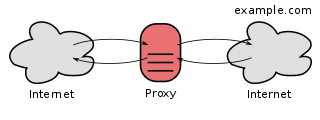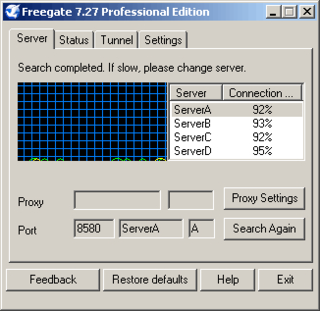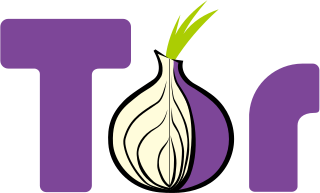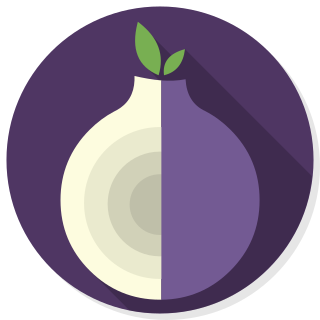
In computer networking, a proxy server is a server application that acts as an intermediary between a client requesting a resource and the server providing that resource. It improves privacy, security, and possibly performance in the process.
Deep packet inspection (DPI) is a type of data processing that inspects in detail the data being sent over a computer network, and may take actions such as alerting, blocking, re-routing, or logging it accordingly. Deep packet inspection is often used for baselining application behavior, analyzing network usage, troubleshooting network performance, ensuring that data is in the correct format, checking for malicious code, eavesdropping, and internet censorship, among other purposes. There are multiple headers for IP packets; network equipment only needs to use the first of these for normal operation, but use of the second header is normally considered to be shallow packet inspection despite this definition.
The Invisible Internet Project (I2P) is an anonymous network layer that allows for censorship-resistant, peer-to-peer communication. Anonymous connections are achieved by encrypting the user's traffic, and sending it through a volunteer-run network of roughly 55,000 computers distributed around the world. Given the high number of possible paths the traffic can transit, a third party watching a full connection is unlikely. The software that implements this layer is called an "I2P router", and a computer running I2P is called an "I2P node". I2P is free and open sourced, and is published under multiple licenses.
The Great Firewall is the combination of legislative actions and technologies enforced by the People's Republic of China to regulate the Internet domestically. Its role in internet censorship in China is to block access to selected foreign websites and to slow down cross-border internet traffic. The Great Firewall operates by checking transmission control protocol (TCP) packets for keywords or sensitive words. If the keywords or sensitive words appear in the TCP packets, access will be closed. If one link is closed, more links from the same machine will be blocked by the Great Firewall. The effect includes: limiting access to foreign information sources, blocking foreign internet tools and mobile apps, and requiring foreign companies to adapt to domestic regulations.

An open proxy is a type of proxy server that is accessible by any Internet user.

Freegate is a software application developed by Dynamic Internet Technology (DIT) that enables internet users to view websites blocked by their governments. The program takes advantage of a range of proxy servers called Dynaweb. This allows users to bypass Internet firewalls that block web sites by using DIT's Peer-to-peer (P2P)-like proxy network system. FreeGate's anti-censorship capability is further enhanced by a new, unique encryption and compression algorithm in the versions of 6.33 and above. Dynamic Internet Technology estimates Freegate had 200,000 users in 2004. The maintainer and CEO of DIT is Bill Xia.
Anonymizer, Inc. is an Internet privacy company, founded in 1995 by Lance Cottrell, author of the Mixmaster anonymous remailer. Anonymizer was originally named Infonex Internet. The name was changed to Anonymizer in 1997 when the company acquired a web based privacy proxy of the same name developed by Justin Boyan at Carnegie Mellon University School of Computer Science. Boyan licensed the software to C2Net for public beta testing before selling it to Infonex.
An anonymizer or an anonymous proxy is a tool that attempts to make activity on the Internet untraceable. It is a proxy server computer that acts as an intermediary and privacy shield between a client computer and the rest of the Internet. It accesses the Internet on the user's behalf, protecting personal information of the user by hiding the client computer's identifying information such as IP addresses. Anonymous proxy is the opposite of transparent proxy, which sends user information in the connection request header. Commercial anonymous proxies are usually sold as VPN services.

Tor is a free overlay network for enabling anonymous communication. Built on free and open-source software and more than seven thousand volunteer-operated relays worldwide, users can have their Internet traffic routed via a random path through the network.

UltraSurf is a closed-source freeware Internet censorship circumvention product created by UltraReach Internet Corporation. The software bypasses Internet censorship and firewalls using an HTTP proxy server, and employs encryption protocols for privacy.
Internet censorship circumvention is the use of various methods and tools to bypass internet censorship.
Connectify is an American software company that develops networking software for consumers, professionals and companies. Connectify Hotspot is a virtual router software for Microsoft Windows, and Speedify is a mobile VPN service and app with channel bonding capabilities, available for individuals, families and enterprise.

Orbot is a free proxy app that provides anonymity on the Internet for users of the Android and iOS operating systems. It allows traffic from apps such as web browsers, email clients, map programs, and others to be routed via the Tor network.
AnchorFree is an internet privacy and security company that provides businesses and consumers with advanced technologies to enable secure and private web browsing. The company's flagship product is Hotspot Shield, a popular virtual private network (VPN) service and the top-grossing app for productivity in the Apple App Store. The company is led by David Gorodyansky, who founded the firm in 2005 with his friend Eugene Malobrodsky. AnchorFree is headquartered in Redwood City, California, with offices in Ukraine and Russia. Its most recent fundraising round in 2018 brought in $295 million, bringing total funding to $358 million.

Lantern is a free and open source internet censorship circumvention tool that operates in some of the most extreme censorship environments, such as China, Iran, and Russia. It was used by millions of Iranians during the Woman, Life, Freedom protests in Iran in 2022 and again during the surge in censorship in Russia following the Russian invasion of Ukraine. Lantern uses a wide variety of protocols and techniques that obfuscate network traffic and/or co-mingle traffic with protocols censors are reluctant to block, often hiding in protocols such as TLS. It also uses domain fronting. It is not an anonymity tool like Tor.

Mullvad is a commercial VPN service based in Sweden. Launched in March 2009, Mullvad operates using the WireGuard and OpenVPN protocols. It also supports Shadowsocks as a bridge protocol for censorship circumvention. Mullvad's VPN client software is released under the GPLv3, a free and open-source software license.
ExpressVPN is a company providing online privacy and security solutions, including a virtual private network (VPN) service and a password manager. Since September 2021, ExpressVPN has been a subsidiary of Kape Technologies, a company wholly owned by Israeli billionaire Teddy Sagi.
Outline VPN is a free and open-source tool that deploys Shadowsocks servers on multiple cloud service providers. The software suite also includes client software for multiple platforms. Outline was developed by Jigsaw, a technology incubator created by Google.[3]

HMA is a VPN service founded in 2005 in the United Kingdom. It has been a subsidiary of the Czech cybersecurity company Avast since 2016.
A virtual private network (VPN) service provides a proxy server to help users bypass Internet censorship such as geo-blocking and users who want to protect their communications against data profiling or MitM attacks on hostile networks.








